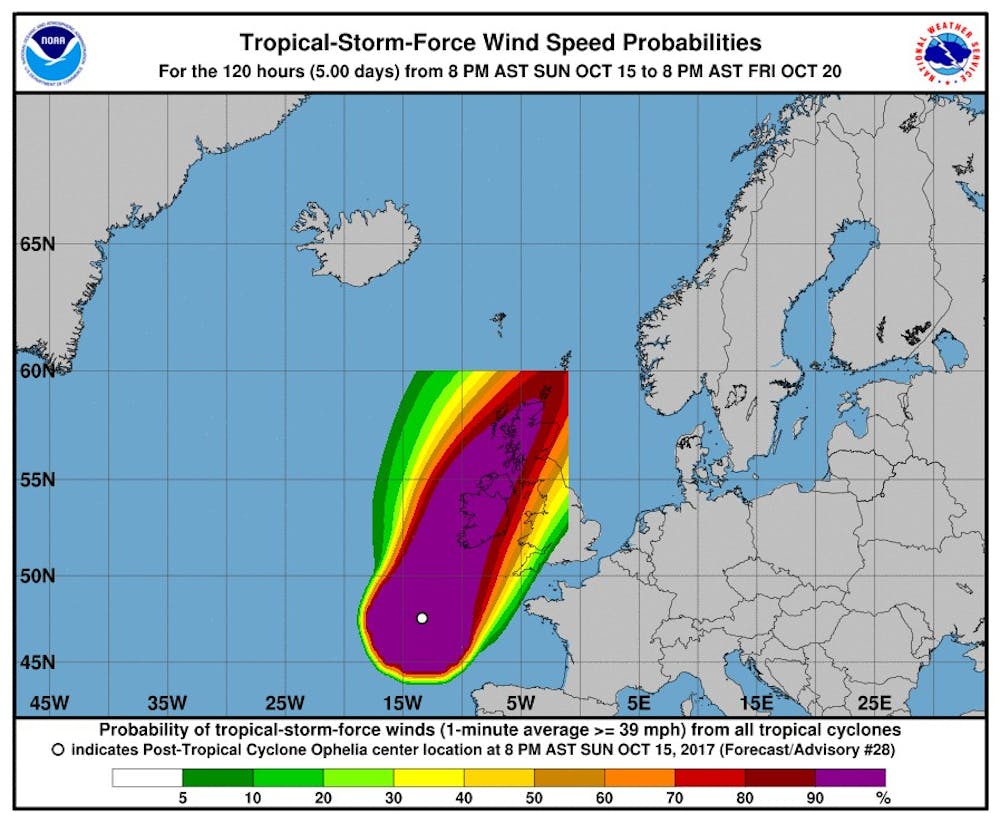Hurricane Ophelia, which hit Ireland Monday, is the 10th consecutive Atlantic storm in 2017.
Winds speeds have reached above 70 mph in several locations, with one gust reaching 119 mph on the southern Irish coast. There have been power outages, fallen trees and at least three deaths resulting from the storm.
This is the first time there have been 10 consecutive hurricanes in the Atlantic since 1893, according to The Weather Channel.
Chip Konrad, a geography professor at UNC, said climate change could be playing a role in the strength and frequency of hurricanes this season, but there is still research being done on the extent of its role.
Konrad said many factors lead to the forming of a hurricane. He furthered that warming air temperatures are associated with climate change, while warming sea surface temperatures are associated with hurricanes.
“Hurricanes get their energy from the sea surface, and with the warming of the sea surface there is more energy there to potentially make hurricanes," he said. "But, you've got to have other things going on in the atmosphere to make a hurricane."
Marlo Lewis Jr., senior fellow at the Competitive Enterprise Institute in Washington D.C., said scientists have tried to figure out how global warming will affect weather patterns over time.
“So, there is modeling that will suggest that over time — by the 2080s — there will be a discernible increase in the power of the most destructive hurricanes, but also a reduction in the overall frequency of hurricanes,” he said.
The National Oceanic and Atmospheric Administration’s study, which is based on climate models, suggests tropical Atlantic sea surface temperatures will warm drastically during the 21st century.



